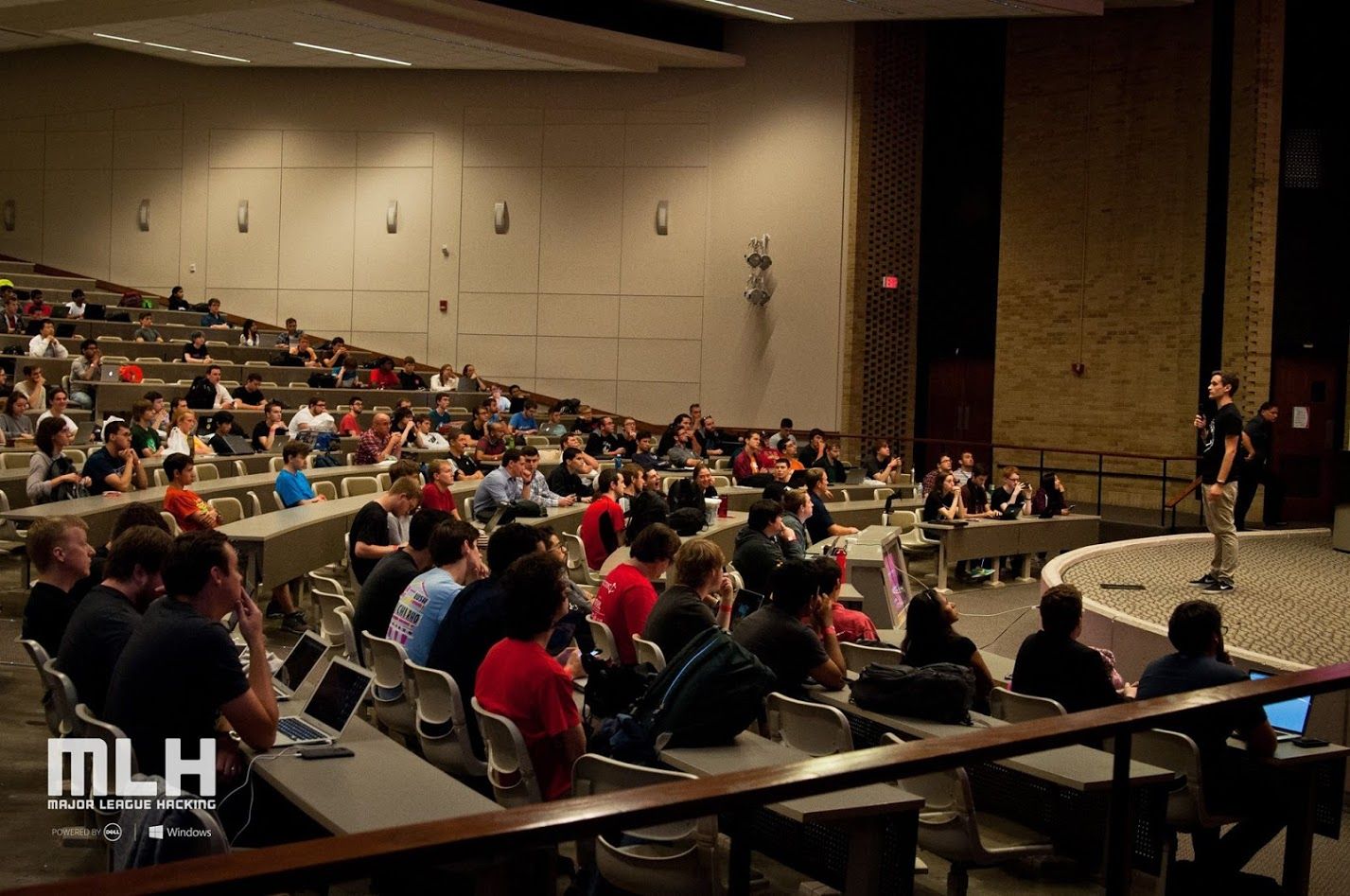RevolutionUC Fall 2016

My past few weeks have been consumed preparing for and running RevolutionUC. RevolutionUC is the University of Cincinnati's student run, MLH partnered hackathon. A hackathon is a competition/learning event where university and high school students come together to 'hack' projects together. What this really means is creating cool and interesting projects as quickly as possible - 'hacking' different technologies together. Students come together to learn and grow, building both tech and collaboration skills. Hackathons are a great chance to contribute to the computing community of a university, and a great way to bring attention to a program.
This year, we had 221 students check-in to RevolutionUC. That makes this fall's event the largest RevolutionUC ever! The largest majority of students were UC students, but we had people come from as far as Virginia Tech! And they built a ton of awesome projects too! You can check out our submissions and winners here.

How it happened
RevolutionUC was the direct result of hours of work on the parts of the organizing team. Countless meetings, emails, and discussions on the part of nearly a dozen execs went into pulling off this RevolutionUC. My position for this hackathon was officially the director of marketing. I also took on roles in logistics working to make sure the hackathon ran smoothly. We began work in July, contacting sponsors and reserving our venue, and continued through to the beginning of the school year. In late August, we began marketing - done primarily by myself and the other marketing lead. We marketing through a number of avenues - our social media presence was primarily through our twitter and facebook. We also reached out to nearby schools, especially schools who have previously partnered with MLH. We also did extensive on campus marketing. I personally spoke at networking events, tribunal meetings, and in classes in an attempt to bring out UC students to our event. I also posted flyers around campus, targeting engineering, business, and design students. As the event neared, I began work on logistics as well, helping ensure that venue concerns were taken care of, we had access to the necessary facilities, and that hackers were well informed.
On the day of, I ran the first part of the opening ceremony, telling a crowd of 200+ about our rules, facilities, and hacking platforms. It's by far the largest crowd I've ever spoken in front of, but I think things went smoothly. I also led team and idea formation with the help of another organizer and a company representative. My goal for team and idea formation was that it would happen organically, without the need for organizers to introduce students and find similarities. And, for the most part it did. I began team formation with an introduction and then moved from small group to small group that formed. Once conversations started, I stepped back and moved onto the next group.

During the bulk of the hackathon I was wandering, dealing with emergencies as they came up, keeping hackers happy, and providing technical assistance when I could. I also took part in running our social media, tweeting pictures of students working hard, of experts giving tech talks, and of people having fun.
Sunday afternoon, I led project demos and helped judges deliberate. After closing cermonies, we cleaned until the venue was in better shape then we left it. All in all, I slept 10 hours from Friday morning to Sunday night.

Why it happened
Every exec probably has a different reason as to why they helped out with the hackathon. For me, it goes down to the same reasons I run ACM@UC. I want to build the community I would've liked to have benefited from - a computing community at UC. Its no secret that that UC's CS program is lacking in some areas. I hope that by building a community here, a strong, inquisitive community, one that takes part in fun events and shows enthusiasm, it'll be noticed. It'll bring stronger prospective students to UC, and it'll bring stronger professors to meet the abilities of those students.
Conclusion
This was my first time organizing a hackathon. It won't be my last. I learned a ton of lessons, built very valuable experience, and it was a great success. But, it could not have happened without the help of the fantastic group of people who helped to make it happen. Keep an eye out for future blog posts about real code!

